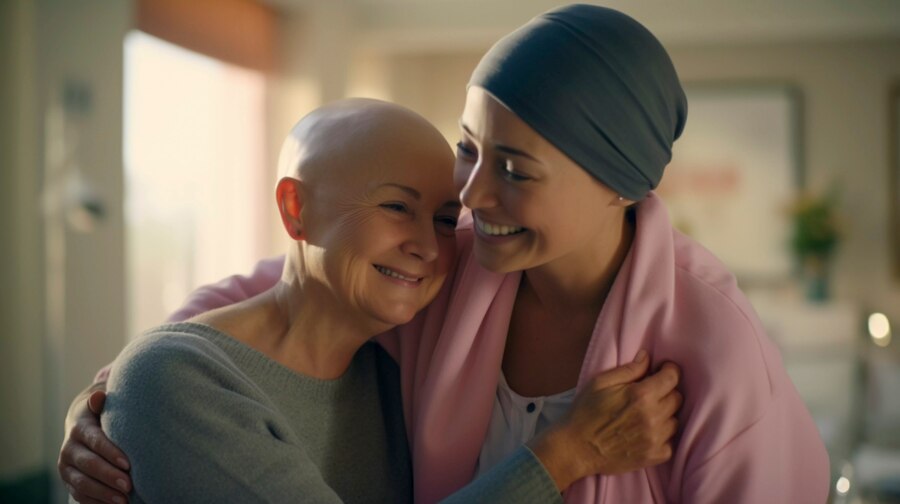Table of contents
As cancer continues to affect millions of lives worldwide, people are increasingly turning toward alternative and complementary therapies to support their health during treatment. One such alternative that’s generated considerable buzz is CBD (cannabidiol), a non-psychoactive compound found in cannabis and hemp plants. Early research suggests CBD for Cancer may hold promise—not only for symptom relief but also for its potential anti-tumor properties.
In this comprehensive guide, we’ll explore what current studies say about CBD for Cancer, how it might work, and how patients are using it to support their overall wellness.
What Is CBD?
CBD is one of over 100 cannabinoids found in cannabis. Unlike THC, CBD does not cause a “high.” Instead, it interacts with the endocannabinoid system (ECS), which plays a key role in regulating bodily functions such as immune response, pain sensation, mood, and cellular health.
CBD is commonly used to help manage symptoms like:
- Pain
- Nausea
- Anxiety
- Sleep disorders
- Inflammation
But emerging research is now investigating whether CBD for Cancer could go beyond symptom relief and help slow or prevent tumor growth.
The Science: Can CBD Help Fight Cancer?

While research is still in early stages, several preclinical and animal studies have shown CBD’s potential anti-tumor effects. Here’s what the science says:
🧪 1. Inhibiting Tumor Growth
Studies in lab environments show that CBD can reduce the growth of certain types of cancer cells, including breast, lung, colon, prostate, and brain cancers. CBD may encourage apoptosis (programmed cell death), a natural way the body gets rid of damaged or dangerous cells.
🧪 2. Preventing Metastasis
Some animal studies suggest that CBD may prevent the spread (metastasis) of cancer cells by inhibiting their ability to migrate and invade healthy tissues.
🧪 3. Reducing Angiogenesis
CBD may also reduce angiogenesis, the formation of new blood vessels that tumors need to grow. By cutting off the supply of nutrients, it may limit cancer progression.
🧪 4. Boosting Traditional Treatments
CBD may enhance the effectiveness of chemotherapy and radiation while reducing their side effects. This includes minimizing nausea, improving appetite, and easing anxiety or depression.
⚠️ Important Note:
Most of these findings are from animal studies and lab models. Human trials are limited, and more research is needed before CBD can be considered a standard cancer treatment.
How Cancer Patients Are Using CBD

Many cancer patients report using CBD for:
- Pain management: Especially neuropathic pain caused by chemotherapy
- Reducing nausea and vomiting: Common side effects of cancer treatments
- Improving appetite: To prevent weight loss and weakness
- Sleep improvement: Reducing insomnia and restlessness
- Mental health: Managing anxiety and depressive symptoms
It’s important to speak with an oncologist or integrative health professional before starting CBD, especially during active treatment, to avoid potential interactions with medications.
Best Ways to Use CBD for Cancer Support
- CBD Oils/Tinctures: Fast-acting and easy to dose
- Capsules: Convenient and pre-measured
- Topicals: Helpful for localized pain or inflammation
- Edibles: Discreet but slower to take effect
- Vaping (not recommended for lung cancer patients): Offers quick relief but may irritate the lungs
Always choose third-party tested, full-spectrum CBD products when possible to ensure safety and efficacy.
5 FAQs About CBD for Cancer
No. CBD is not a cure for cancer. However, it may support symptom relief and possibly enhance the effectiveness of traditional treatments.
Many patients use CBD during chemotherapy, but it’s essential to consult your doctor due to potential drug interactions.
Dosing varies depending on the individual, symptoms, and product used. Start low (10–20 mg/day) and increase gradually under medical guidance.
Yes, CBD can interact with some medications by affecting liver enzymes. Always discuss CBD use with your oncologist or pharmacist.
Some early studies show reduced tumor growth in lab and animal models, but human research is still limited.
Final Thoughts
While it’s too early to declare CBD as a cancer treatment, the research into CBD for Cancer shows promising possibilities. Its role in pain management, inflammation control, and potentially inhibiting tumor progression makes it a compelling area of exploration for both scientists and patients alike.
If you or a loved one are undergoing cancer treatment, talk to your healthcare provider about whether CBD for Cancer could be a beneficial part of your comprehensive care plan.





